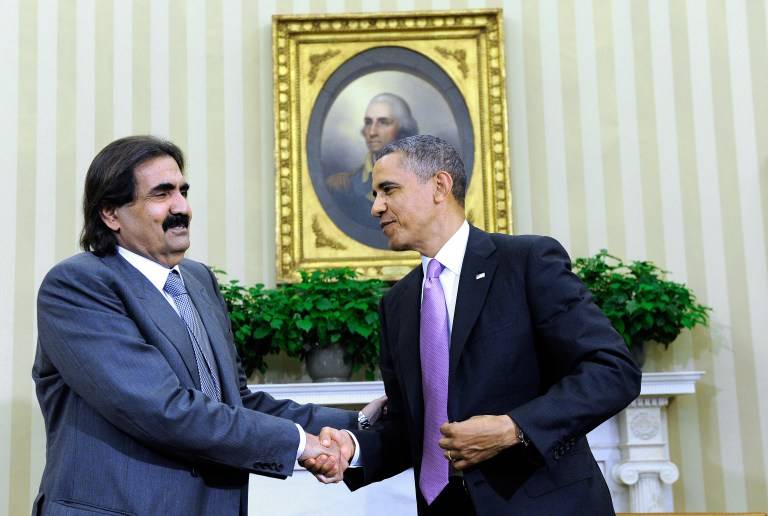TEHRAN: Iran’s regime has started to distance itself from militant protesters who stormed Britain’s embassy, after seemingly being caught off balance by the retaliatory closure of its mission in London.
Two senior clerics on the weekend sought to portray the hundreds of protesters who invaded and trashed the embassy and a second British diplomatic compound last Tuesday as having acted without official endorsement or orders.
One of them, Ayatollah Ahmad Khatami, who is close to Iran’s supreme leader Ayatollah Ali Khamenei, called the assaults and occupation of any embassy "illegal" and tantamount to invading another country.
The criticism of the protesters — described by officials on the day of the rampages as student members of the Basij militia controlled by Iran’s Revolutionary Guards — was an abrupt U-turn from previous comments defending them.
The reversal in the official line followed Britain’s decision to close its Tehran embassy and order the closure of Iran’s embassy in London in retaliation.
The European Union has also said it could add further sanctions on top of the ones already imposed over Tehran’s controversial nuclear programme.
British officials said the ransacking of their embassy could only have occurred with the consent of Iran’s leaders.
The evacuated ambassador, Dominick Chilcott, highlighted initial inaction by Iranian police as the protesters entered the embassy, ripping portraits of British monarchs, rifling through papers and computers, spraying graffiti everywhere and starting fires.
Although Iran’s foreign ministry expressed "regret" immediately after the violence, other factions in the regime were defiant.
Parliamentary speaker — and a key Khamenei ally — Ali Larijani, for instance, said the embassy assault was an understandable outpouring of anger at decades of "domineering policy" by Britain.
Ayatollah Khatami, leading Friday prayers, instructed worshippers to add "Death to Britain" to their cycle of "Death to America" and "Death to Israel" chants, and warned other Western countries not to join Britain in retaliating — "or else our nation’s hatred toward Britain will also befall them."
But suddenly the tone changed markedly.
"I explicitly say that I am against attacking embassies and occupying them," Khatami was quoted as saying by the ISNA news agency a day later.
"Attacking an embassy and occupying it is like invading a country and is illegal," he said.
Khatami stated that "we must not compare" the storming of the British embassy with the 1979 taking of the US embassy in Tehran that resulted in US-Iranian diplomatic ties being broken off entirely.
Another senior cleric, Grand Ayatollah Naser Makarem Shirazi, on Saturday said it was possible that "elements" had infiltrated the protesters to prompt the backlash against Iran.
Shirazi also said his country "could pay a high price" for the embassy assault.
A deputy foreign minister in charge of consular affairs, Hassan Ghashghavi, told the state-run Jam-e Jam satellite channel "the future is unclear" for bilateral relations with Britain, even though ties have not been completely severed.
He called London’s reaction "irresponsible" because it would adversely affect the estimated 200,000-300,000 Iranians residing in Britain.
"This should be reviewed from the point of view of human rights. How could they leave passports hanging in their embassy here and in ours there?" Ghashghavi asked.
French diplomats on Saturday said they were temporarily reducing their staff numbers in the French embassy in Tehran because of security concerns in the wake of the British embassy assault.
The French, German, Italian and Dutch ambassadors have also been recalled to their respective capitals for consultations on the issue.

